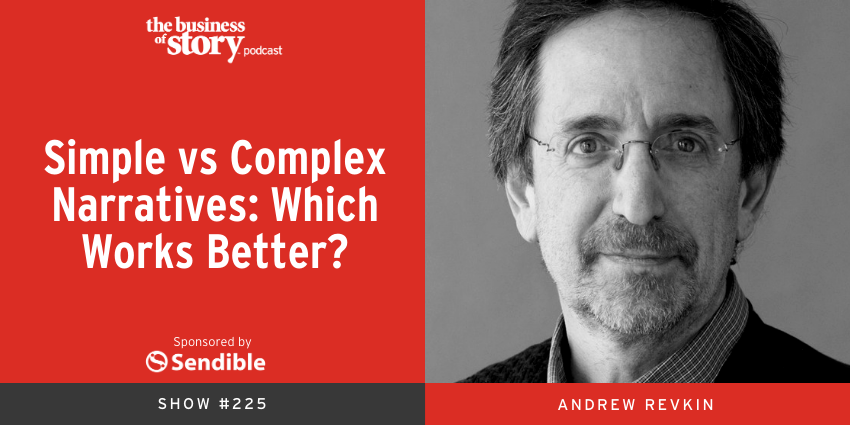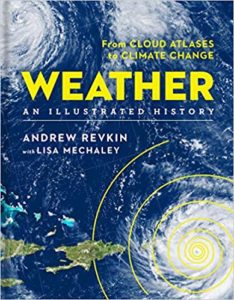Podcast

#225: Simple vs Complex Narratives: Which Works Better?
#225: Simple vs Complex Narratives: Which Works Better?
Many researchers suggest our Homo sapiens brains are lazy in the pursuit of conserving energy, so we prefer information that can be easily consumed. And many of you listening are doing purpose-driven work to advance social initiatives further and faster through the power of story. But not all stories can be told simply, especially on complicated social issues. So when is it necessary for more nuance and complexity to make your storytelling effective?
Andrew Revkin is an American science and environmental journalist, author, educator, and Founding Director of Initiative on Communication Innovation & Impact for the Earth Institute at Columbia University. He has spent many years addressing complex problems through his storytelling, including tackling some of the most challenging narratives in climate science. He has found (and shares) how he uses the stories of his audience to determine the appropriate narrative structure to deliver.
For many of these tough issues there is no single story and there is no single path. ~Andrew Revkin

This is mainly because of two reasons: social issues affect segments of the population differently, meaning different perceived realities, and some issues cannot be condensed into short stories. For example, not everyone experiences climate change in the same way, not only in terms of geographics but socioeconomics, etc. And because of this, listening to and understanding your audience’s perceived reality of the issue must be at the forefront when determining which structure to use. For instance, if you determine your audience has had minimal exposure to climate change but they’re curious about it, then a complex narrative that encompasses all arguments of the issue in order to not create bias is most beneficial.
In terms of engaging any audience, if you are not doing a lot of listening, then you are doomed. ~Andrew Revkin
It is only after you have determined how your audience perceives the issue that you can begin to craft an effective narrative.
Discussed in this Episode
- How to use storytelling to build a communicative culture
- The importance of storytelling to build a solutions society
- Why you should examine your story periodically
- How and why you need to understand who your audience is before crafting your story
Resources & Links
- Weather: An Illustrated History: From Cloud Atlases to Climate Change
- Global Warming: Understanding the Forecast
- The North Pole Was Here: Puzzles and Perils at the Top of the World
- The Earth Institute at Columbia University
- Dot Earth
- The Burning Season: The Murder of Chico Mendes and the Fight for the Amazon Rain Forest
- “Liberated Carbon” by Andrew Revkin
- Andrew Revkin’s Linkedin
- Andrew Revkin’s Facebook
- Andrew Revkin’s Twitter
- Climate Disclosure Project (CDP)
- Start your 30-day free trial of Sendible today. Don’t forget to use our special link to get 30% off the Traction plan: sendible.com/park30
- Business of Story listeners, please take this short survey
 Listen To More Episodes
Listen To More Episodes





